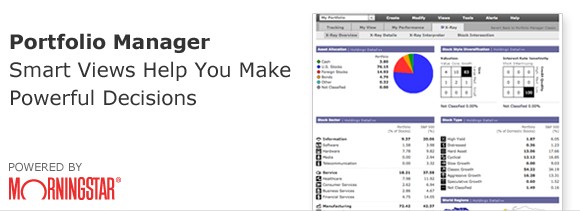Pick the Right Money ManagerKiplinger
Post on: 10 Июль, 2015 No Comment

You’re tired of going it alone. Who do you call? Since 2008, when nearly every investment category suffered declines, people have been clamoring for good advice. Some seek just a little guidance, while others want to leave virtually all of the decision-making to a professional. But with so many money managers offering their services—from banks to brokers to online sites—picking the right one is harder than ever. How do you find an adviser who’s right for you and your family?
See Also: 5 Signs It’s Time to Fire Your Financial Adviser
We’ll tell you how. Whether you want a one-time checkup on your financial life or an ongoing relationship with a money manager, we’ll lay out the many types of companies you can go to and tell you what kinds of services you can expect, how much you can expect to pay in fees, and the minimum amount you’ll need to bring to the table. (You might be surprised to learn that some firms will let you through the door with a pittance.) Then we’ll tell you how to drill down within the firms to find a good adviser and what questions to ask when you interview a prospective money manager. We list the kinds of investment managers in order of the minimum amount of money they require, starting with those that demand the least.
Online Outfits
See Our Slide Show: 10 Best Online Brokers
Some Web sites, such as Covestor. TD Ameritrade’s thinkorswim and Ditto Trade. allow you to follow or mimic the moves of a manager or a top trader. Other firms, such as Jemstep and FutureAdvisor. offer recommendations on mutual funds and exchange-traded funds based on your personal circumstances. You plug in data from your brokerage and 401(k) accounts, for example, and the Web services review your account holdings, flagging funds that have high expense ratios or that have lagged the broad market over time.
Some online outfits, including Betterment. Hedgeable and Wealthfront. will manage your money for less than 1% a year. Betterment creates portfolios that contain only ETFs. Plug in your goals (say, “I need $2 million in 20 years, and I have $200,000 now”) and answer a few risk-tolerance-related questions, and Betterment sets your allocations to get you to your goal. Once a portfolio is established, Betterment periodically rebalances it to keep the allocations in line with the desired percentages. You can start with $100 and pay 0.35% a year (as long as you invest $100 a month); invest $100,000 and you’ll pay 0.15% annually.
Some sites, including LearnVest and NestWise. link you to a fee-only planner who comes up with a comprehensive financial and investment plan. LearnVest’s services cost $399 to start and $19 a month; NestWise charges $250 upfront and about $48 a month thereafter. At LearnVest, a budget-starter program costs $89 to begin and then $19 a month. The service allows you to connect to a planner, who will help you organize your finances and start an investing program.
Financial Planners

Planners do far more than manage your investments. They’ll give you advice on saving for retirement and for your kids’ college education. They can do estate planning and point you toward accountants who will prepare your taxes. They can discuss the wisdom of trading up to a bigger, more expensive house.
See Our Slide Show: 8 Financial Pros You Need on Your Side
In Monterey, Cal. fee-only planner Gifford Lehman and his three associates at Integris Wealth Management manage $165 million for 75 clients. He doesn’t require an asset minimum to become a client, but his fee structure works best for investors with at least $1 million. He charges between 0.5% and 1% of assets annually, depending on account size. (That fee is on top of any underlying fees for the investments he chooses.) In addition to the usual investing advice, Lehman offers estate and tax planning.
Just because a firm is big doesn’t mean it requires a big minimum. Edelman Financial Services, based in Fairfax, Va. has more than 17,000 clients, $8.5 billion in assets under management and offices in 14 states. Some planners at Edelman will accept accounts of as little as $75,000, but the fees will be 2% of assets per year, compared with 0.75% annually for an account of $1 million to $3 million. Other big firms offer advice in small increments: Garrett Planning Network, a nationwide group of independent planners, can put you in touch with one of its more than 300 fee-only advisers, who charge hourly rates of $150 to $240 and can help on an as-needed or ongoing basis. Their target audience is beginners, middle-income earners and do-it-yourselfers. It typically takes eight to 12 hours to devise a comprehensive financial and investment plan.
Then there are brokers-turned-planners. Take John Burke: For 22 years, he was an adviser at big brokerage firms—Merrill Lynch and Morgan Stanley—plying their recommended funds and stocks. Now, he’s a financial planner and has his own firm, Burke Financial Strategies, in Iselin, N.J. Instead of making money on commissions, as he once did, he earns a fee based on the assets he manages. And his clients get more than just investment advice—they get comprehensive financial planning, too. The firm is tied to the Raymond James brokerage, but Burke says he doesn’t earn commissions on products he sells. His fee is 1% of assets under management annually. He works with clients who have more than $1 million, but two associates in his office—one is a certified financial planner and the other is a certified public accountant—take on clients with $200,000 to $1 million in assets. “If you exclude people with less than $1 million, you exclude most of America,” says Burke.














